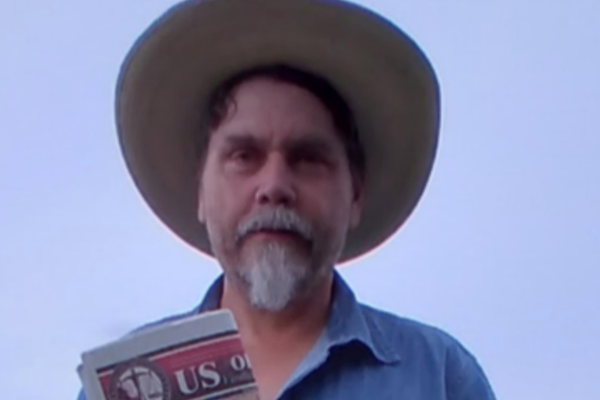'"If I'm not getting the help from the law, then what am I supposed to do?"
This is a reflection from a victim-survivor who reported a sexual assault to police.
It's one of a number of views from complainants who have been, in the words of ACT chief police officer Scott Lee, "let down" following a review of reports of sexual offences to police in the ACT.
The review found there had been a "failure to properly and appropriately investigate" sexual offences in the territory. Police may have to reinvestigate up to 30 per cent of closed reports identified in the review.
Sexual offences were rarely investigated by police who were influenced by rape myths and a mistaken understanding of consent, the review found.
Victim-survivors who spoke to reviewers presented devastating experiences, from not being believed, to being brushed aside by officers and missing opportunities for crucial evidence to be obtained.
Police notes, also examined in the review, showed officers relying on stereotypes such as a victim being drunk or not physically resisting an assault as reasons for not pursuing a charge.
'Openly admits to being a sex worker'
The review examined notes from police about sexual offence reports in 2021.
These notes showed officers questioning victim-survivors credibility based on them engaging in "risky behaviour".
"Openly admits to being a sex worker," a note said.
"They all drank heavily, played spin the bottle involving long passionate kissing.
"By admission, [victim] was intoxicated and experienced memory loss."
The review paraphrased notes from a police interview, which said a victim was "crying, mumbling 'please stop'" during an offence but officers concluded there was "no evidence to suggest non-consensual intercourse took place".
One report showed an officer suggesting a 15-year-old had consented to sex with someone at least 20 years older than her, despite the age of consent being 16 in the ACT.
In one case, police suggested consent was implied because they were a married couple and there was "insufficient evidence to support offences".
"The victim reported that her husband would sexually assault her often, including after recent childbirth," the review said
"In finalising and closing the case with no charges, officers 'considered' that the victim and suspect were married and that 'as a married couple [were] sharing a bed'."
Police used a person's previous sexual history in their decision-making around whether to press charges.

"In summary, I think there is definite criminality here, but it has occurred in the context of a very kinky (dominant / submissive) relationship so it may be hard to prove the offences beyond reasonable doubt," a report said.
Swinburne Law School senior law lecturer Rachael Burgin examined the police notes and interviewed 33 complainants as part of her research.
She said it was problematic police were relying on the "beyond a reasonable doubt test" as this was not the basis on which officers should pursue charges," she said.
"That is the job of the jury or the fact finder if it happens to be a judge. It is not the role of a police officer or a prosecutor to apply a beyond reasonable doubt."
'Ask and ask and ask for updates and never hear anything'
"Grim, the findings are grim," Dr Burgin said.
She said her interviews with victim-survivors showed how people were being turned away during the most "traumatic experience of their life".
A victim-survivor said she felt traumatised after being made to feel her matter was "administrative".
"And I think, yeah, a big part of the trauma that comes from it, it seems not just for me, but for other people, seems to be in that disparity of it feeling like the most important, worst thing in my life at that time and to some of the people I talked to, it was kind of administrative," she said.
Victims reported not being able to get information from police and others said they were the ones directing police to follow up on leads.

"I mean, the worst thing about it was that I just could never get an update, ever, ever, ever, ever. Like I would just ask and ask and ask for updates and never hear anything," one said.
Another said: "I was almost pushing [police officer] to even get all these statements from all these people... so it was like, come on, you know, do your job. We just sort of felt like. Well, I felt like I was sort of doing a bit of pushing for them."
Victims reported difficulties in reporting their sexual assaults, with police telling them to come back at a later date. In some cases this meant crucial forensic evidence was missed and this ultimately resulted in charges not being pursued.
One said they had presented at a police station to report their assault but was told they had to go to another station which was closer to where the incident occurred.
Police missed appointments and others expected complainants to show up for interviews at strange hours.
"I went [to the station] myself with [my] children on a Sunday evening at 9.30pm because we need to compromise with the police officer's shift time. He refused to come to our house getting the statement because it's including a child statement... the children had school the following day," one victim-survivor said.
Another person reported their alleged assault over the phone. The police showed up unannounced and the complainant was unprepared. She wanted a support person to be with her when she made her report and asked the officers to come back at another time. They agreed to come back at 2pm the following day.
She had her support person but the scheduled time came and went, she described waiting "for another hour, and another hour and another hour".
"Eventually she called the officers who told her they had been pulled away by something else and would be late. By 9pm the police still had not arrived, and [the] support person had to leave," the review said.
"Police eventually arrived at 10pm."
One victim-survivor said it was suggested they had made up their assault after breaking up with the alleged perpetrator.
"[Police said] there was 'insufficient' proof and that I most likely made it up as a revenge of the breakup," a victim said.
'Not unique to the ACT'
All those who worked on the report believe the ACT is not an outlier and similar findings would be made if other jurisdictions embarked on reviews.
The overall review of the sexual offences was overseen by a committee and former Victorian police commissioner Christine Nixon was the co-chair.
"I think similar findings will be within other jurisdictions across Australia," she said.
"I think all the jurisdictions recognise their concerns and the way these matters are investigated.
"I think it lays a great foundation for the ACT but perhaps as well for the broader community in Australia."
Dr Burgin agreed. She said the territory's police should be congratulated for opening themselves up to this review and she wants other jurisdictions to follow suit.
"Low charge and high attrition are not unique to the ACT," she said.

Police resourcing in the territory has also come under fine. The territory spends the least amount on policing per head of population and there have been repeated concerns about police numbers not keeping up with the rate of population growth.
Professor Nixon said resourcing may have played a role in the findings but failures also came about due to police systems.
"I think the issue facing the ACT is about systems and practices that have come into place over time," she said.
"I think resources are a part of it but reforming systems, reforming processes, bringing parts of the whole of government together to respond on these issues is important and then you have to fund it."
Deputy Commissioner Lee said officers were committed to change.
"Policing is a challenging profession and I think it's becoming even more complex in terms of the modern operating environment that we have," he said.
"But I also think it's legitimate that certainly the community expect a level of transparency and accountability from their police, particularly as we need to ensure that we have the trust and legitimacy of the community in terms of how we police and how we protect."
- Support is available for those who may be distressed. Phone Lifeline 13 11 14; Kids Helpline 1800 551 800; beyondblue 1300 224 636; 1800-RESPECT 1800 737 732; Canberra Rape Crisis Centre 02 6247 2525; Domestic Violence Crisis Service 02 6280 0900







